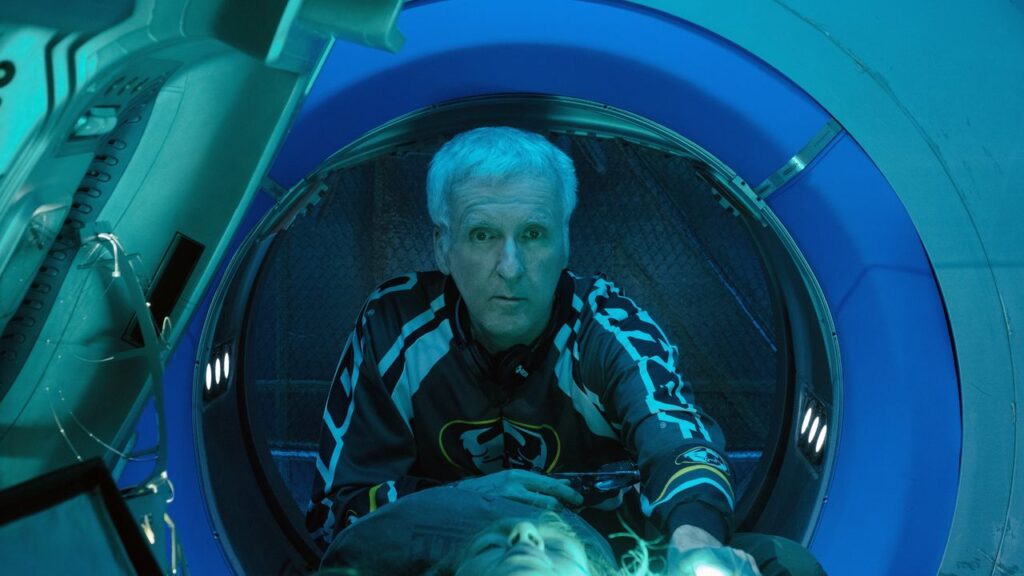Can you believe that for a little while it was considered kinda cool to hate on Titanic? To talk about how L.A. Confidential was the Goodfellas to its Dances with Wolves? As a classic case of a filmmaker triumphing by leaning into what a lot of people consider his worst instincts—corny dialogue, sentimentality, supersized running time—Titanic is the sweetest, most open-hearted revenge ever assembled. For at least the third time in his career, Cameron made the most expensive movie of all time, one that contained not a single alien, killer robot, killer-turned-protector robot, machine gun, or Arnold. (It’s a movie made for fans of everyone’s favorite Cameron creation: the water from The Abyss.) And then the damn thing became the biggest movie ever and won 11 Oscars. With good cause, though: This thing plays, and also pre-visions Cameron’s later career by playing particularly well in a movie theater. Sure, it still “works” at home because it’s beautifully crafted, well-acted, and just plain engaging. But on a big movie screen, in public, with other people around to hear you sniffling, this is the disaster movie to end all disaster movies, including the many that followed in its wake. The sheer hugeness of that boat going vertical, snapping off, and then sinking, enveloped by the darkness of the sea is, despite being set in 1912, a stirring tribute to both the frightening majesty of technology and the potential wrath of nature. Also, that thing where the guy falls off the capsizing boat and eats it on the propeller on the way down is low-key super influential.
1. Aliens (1986)
20th Century Fox/Everett Collection
Maybe it’s not fair to say Cameron’s best movie is one based on characters and concepts he didn’t originate himself. Then again, there’s a certain knowingness to Cameron’s wresting control of a beloved sci-fi-horror classic, as evidenced by the now-legendary (but apparently true!) story of his characteristically hubris-laden pitch: Writing “ALIEN” on a board and then appending it with “$” to drive home the irresistible simplicity of what he had in mind. Of course, Aliens is actually more logistically complicated than its predecessor. Ripley (Sigourney Weaver) wakes up after a 57-year deep freeze, returned to Earth to find that the nefarious Weyland-Yutani corporation has gone ahead with setting up a colony on the exomoon where she first encountered the xenomorph of the previous picture. When the company predictably loses contact with the colony, she reluctantly agrees to accompany a group of Marines investigating the situation. What they find there is aliens. And a mech-suit. And some of grabbiest, most visceral sci-fi action of all time, with an emotional backbone so strong that when the next sequel dared fuck with it, its entire reputation was more or less instantly torpedoed. (Alien 3 innocent!). Weaver also snagged a much-deserved Best Actress Oscar nomination for the rare sequel that expands and deepens its iconic lead in a meaningful way—and makes a strong woman into a mother figure without cheapening her character in the process. As much as Aliens is an ante-upping, dollar-signed thrill ride that gave Cameron a bigger canvas after the scrappier Terminator, it’s also a surprising meditation on (and upending of) femininity, pitting grief-stricken mother (the detail of Ripley’s daughter dying while she was in stasis isn’t in the theatrical cut, but her grief at the loss of all that time still looms over everything) against the fiercest alien queen in the galaxy. Ripley and the xenomorphs may be someone else’s characters, but Aliens recontextualizes them in the ultimate James Cameron movie.


